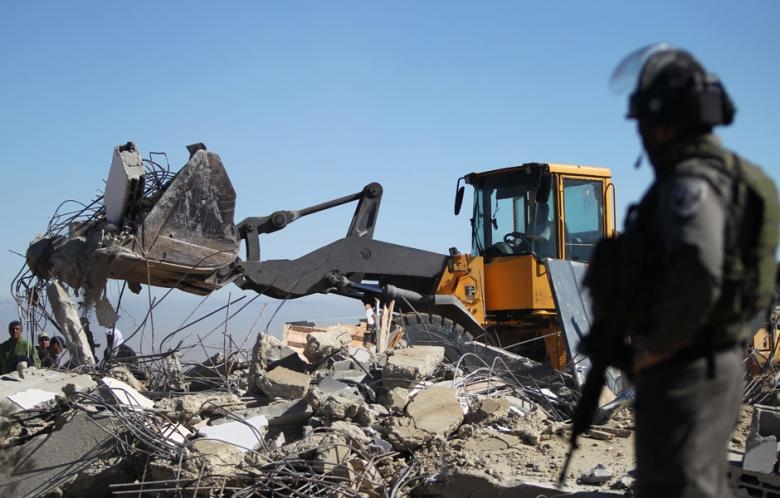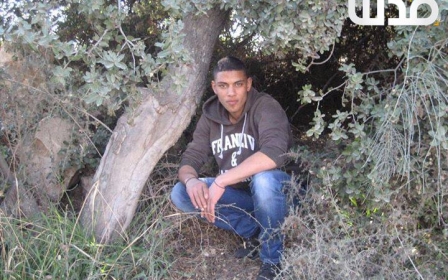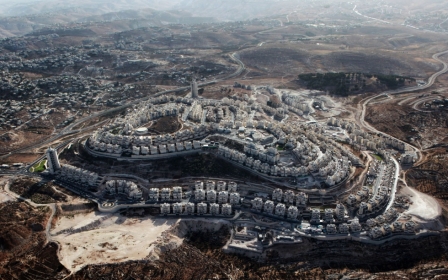Israel seeks to raze Palestinian village for 'archaeological work'

Israeli authorities are seeking permission to demolish a Palestinian village in the southern West Bank and expel its residents.
A petition was launched by residents and human rights organisations around a year ago to save the village, but Israeli authorities have now asked the High Court of Justice for permission to demolish the village, saying that it will allow archaeological work to be carried out.
If approved, the village of Susya, home to 350 Palestinians, will be demolished and its residents will be relocated.
The village’s occupants mainly depend on farming and livestock for their livelihood.
Israeli authorities claim that the village was built illegally on a land that is under Israeli control, saying that “the village consists of only a few seasonal residences for a few families; the land is necessary for the continuation of archaeological work”.
The archaeological site based at the village is run by occupants of the nearby Israeli settlement, also known as Susya.
Susya falls within "Area C," which covers nearly two thirds of the West Bank and remains under full Israeli civil and security control, as stipulated by the Oslo II Accord (signed in 1995 between Israel and the Palestinian Authority).
International law considers the West Bank and East Jerusalem occupied territories captured by Israel in 1967, deeming all construction of Jewish settlements on the land illegal.
Attorney Kamar Mishraki-Asad, who represents the residents of the Palestinian village of Susya, told Israeli daily Haaretz that the government’s decision to seek the demolition was “incredible”.
“It was already ruled that Susya land is privately owned…by Palestinians. Despite this, for many years the army has prohibited residents from setting up homes in the area…in order to keep them away from the Susya settlement”.
“Now, the army claims that expelling the residents is for their own good”.
The state has said it will relocate the residents of Susya village to government-owned land north-west of their original village, where it has said the land is ideal for farming and grazing.
The state claims Susya village has no historic roots, and settlers living nearby last year filed a petition calling for the “illegal [Palestinian] outposts” to be removed.
However, Palestinian activist Rateb al-Jabour told Anadolu Agency that the village was constructed before the Israeli occupation of the West Bank in 1967.
Jabour added that the demolition order came with the aim of expanding Jewish settlements in the area.
Al-Jabour's claims are yet to be independently verified, and Israeli authorities have not commented on the claims.
Middle East Eye propose une couverture et une analyse indépendantes et incomparables du Moyen-Orient, de l’Afrique du Nord et d’autres régions du monde. Pour en savoir plus sur la reprise de ce contenu et les frais qui s’appliquent, veuillez remplir ce formulaire [en anglais]. Pour en savoir plus sur MEE, cliquez ici [en anglais].




